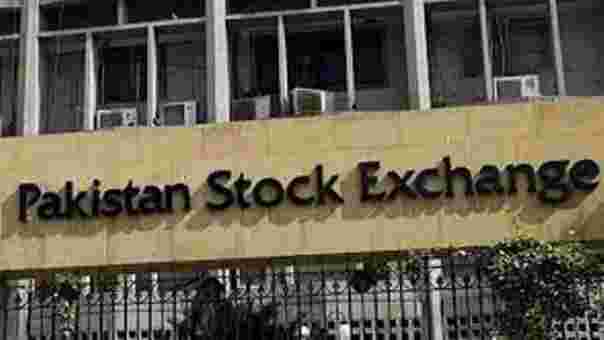Karachi, December 24, 2024 – The KSE-100 index of the Pakistan Stock Exchange (PSX) faced a sharp decline on Tuesday, shedding 1,509 points amid heightened year-end volatility and cautious investor sentiment. The KSE-100 closed at 112,415 points, down from the previous day’s closing of 113,924 points, reflecting a 1.33% drop.
Analysts at Topline Securities Limited noted that the KSE-100 index exhibited significant swings throughout the trading session. The index initially climbed to an intraday high of 1,112 points, showing early optimism. However, profit-taking and bearish sentiment soon took over, dragging the KSE-100 to an intraday low of 1,629 points before it settled with a 1,509-point loss.
Rising leverage positions and increasing borrowing costs were key drivers behind the downturn. These factors heightened risk perceptions, compelling investors to trim their portfolios. Additionally, the imminent expiration of December contracts added pressure, further contributing to the cautious and selective trading behavior seen across the KSE-100.
Despite the overall negative trend, a few stocks supported the KSE-100 index during the session. United Bank Limited (UBL), Dawood Hercules Corporation Limited (DAWH), Sui Northern Gas Pipelines Limited (SNGP), TRG Pakistan Limited (TRG), and Attock Petroleum Limited (APL) collectively added 351 points to the index. However, these gains were outweighed by major laggards, including Fauji Fertilizer Company Limited (FFC), Mari Petroleum Company Limited (MARI), MCB Bank Limited (MCB), Hub Power Company Limited (HUBC), and Engro Corporation Limited (ENGRO), which collectively dragged the KSE-100 down by 850 points.
Trading remained robust, with a total volume of 879 million shares and a turnover of Rs. 54 billion. WorldCall Telecom Limited (WTL) led the volume chart, with 127 million shares traded.
The performance of the KSE-100 underscores the impact of year-end financial adjustments and external pressures on investor sentiment. As the market grapples with these challenges, the volatility in the KSE-100 reflects broader economic uncertainties and the cautious approach of investors as the fiscal year draws to a close.
